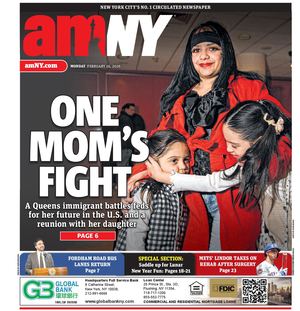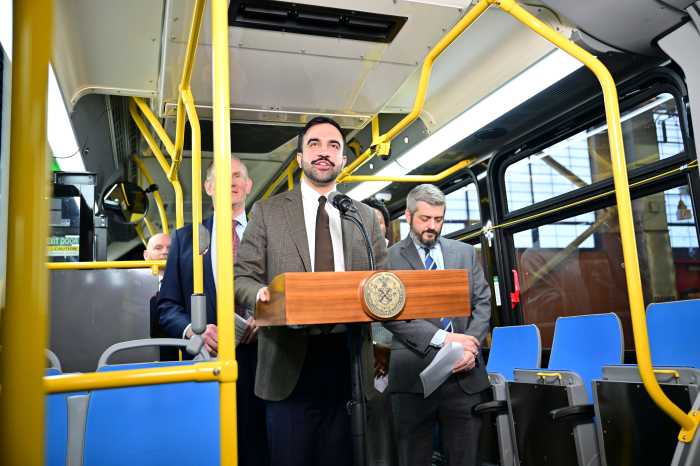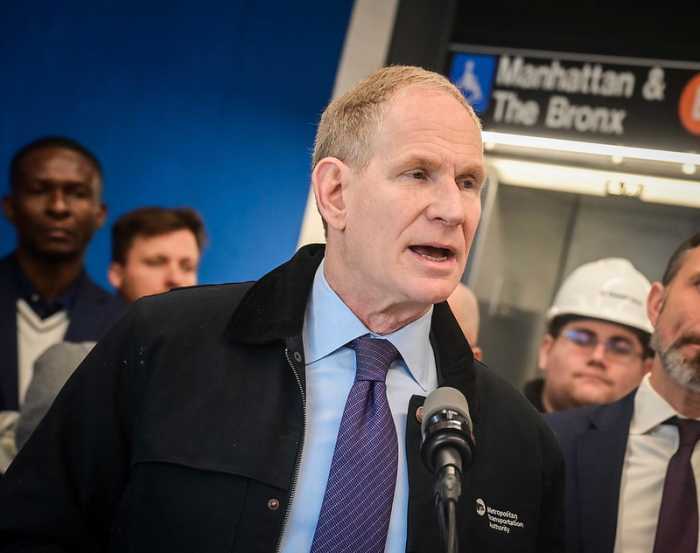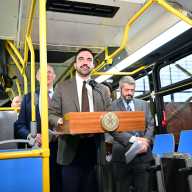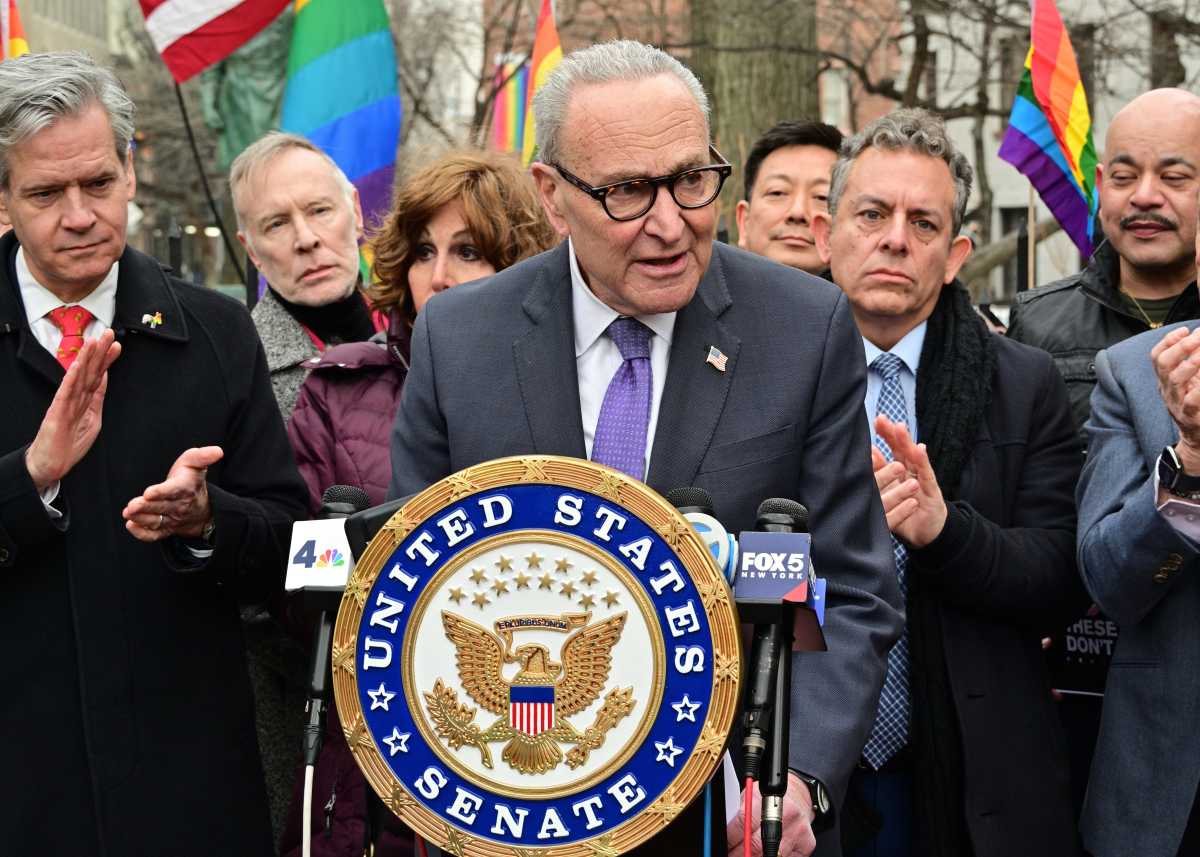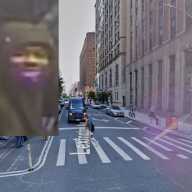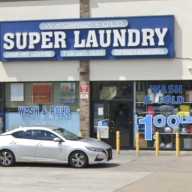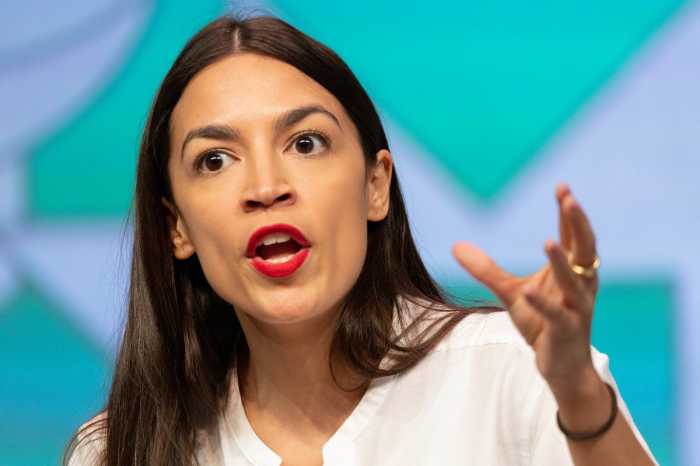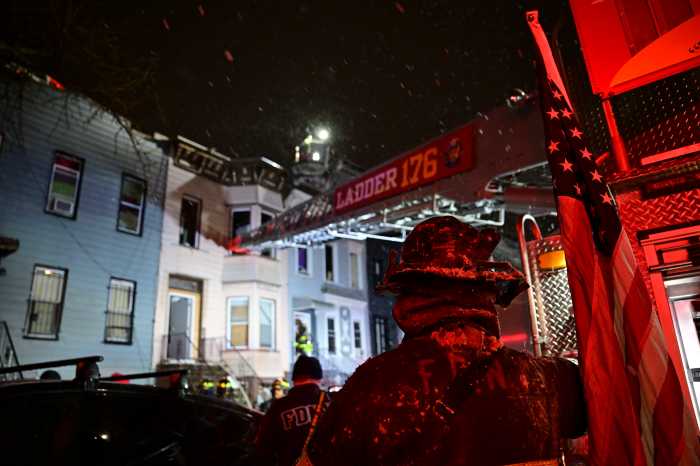Ride-hail apps like Uber and Lyft will have to hand over more trip data to New York City, closing the latest chapter of a bitter battle between the city and the industry over customer privacy and safety.
Those ride-hail apps, along with the rest of the black car industry, will now have to provide drop-off times and locations of trips to the Taxi and Limousine Commission after the board voted on Thursday to pass a controversial amendment to what’s known as its Driver Fatigue Rule—a Vision Zero measure instituted last May to keep sleepy, overworked taxi and for-hire vehicle drivers off city streets.
That data will give the TLC a fairly complete look at the trips of Uber and its ilk — the industry already provides pickup times and locations to the city agency — information the city has long tried to pry from the companies. The successful vote on Thursday could have a ripple effect in cities across the country that have also sought the data to improve transportation planning.
“These companies are foremost data companies more than transportation companies,” said Sarah Kaufman, assistant director for technology programming at the NYU Rudin Center for Transportation. “Their business is based on the information they collect and operate on, so they are hesitant to show their cards.”
The TLC argues that it needs trip drop-offs and locations to properly track and regulate driver hours. It would also help, the agency said, combat illegal hailing and reckless driving, bringing greater accountability to the for-hire industry, which has surged to 78,000 cars citywide — four times the number of combined green and yellow taxis.
“This (data is) self-reported and we have to have some way to verify the accuracy of what’s self-reported,” said Meera Joshi, chair and CEO of the TLC, in an interview with reporters after the vote. “In addition to that … it just overall gives a much clearer picture of movement within the city, which is how we should be making policy and I believe probably other agencies should be, too.”
But this means that city government will have its hands on what Uber and Lyft have argued is sensitive customer information. This trip information will be publicly available, though the TLC has said that exact drop-off locations will be obscured to areas roughly the size of neighborhoods. Still, ride-hail companies and others have said that the data change-of-hands jeopardizes the information being leaked, or pieced together by inquiring minds.
“The last thing New Yorkers want is for our information to get into the hands of hackers, or worse — the Trump administration,” said Public Advocate Letitia James in a statement issued a day before the vote. “The new proposed rules by the TLC could compromise New Yorkers’ privacy without any proof that such regulations will increase overall safety.”
Through the amendment, approved unanimously by the TLC board, the black car industry will have the option of providing drop-off locations in three ways: through an exact address, longitude and latitude or nearest intersection. Commissioner Nora Marino said she understood the privacy issues and said that flexibility should help ease concerns.
“There’s really no threat there, regarding people’s privacy,” Marino said.
Uber has considered those three options a last-minute change. A representative from Uber said it will review the “new” proposal with privacy experts.
“This new proposal reflects that the TLC is beginning to understand the concerns privacy experts have raised,” said Alix Anfang, an Uber spokeswoman, in a statement. “We will continue to stand up to protect the privacy of our riders and drivers, especially in an age when data collected by government agencies can be hacked, shared, misused or otherwise made public.”
Rebecca Harshbarger, a spokeswoman for the TLC, countered, saying that the agency has previously discussed the three ways in which Uber could deliver the drop-off locations with company representatives.
There’s no clear data set for when companies must comply with the rule.
Allan Fromberg, a spokesman for the TLC, said Thursday’s vote was the “beginning of a long road” of implementation. With many of the black car companies essentially operating as more mom-and-pop shops, the agency said it would give the industry at least six months to build the infrastructure needed to compile and hand over data.
